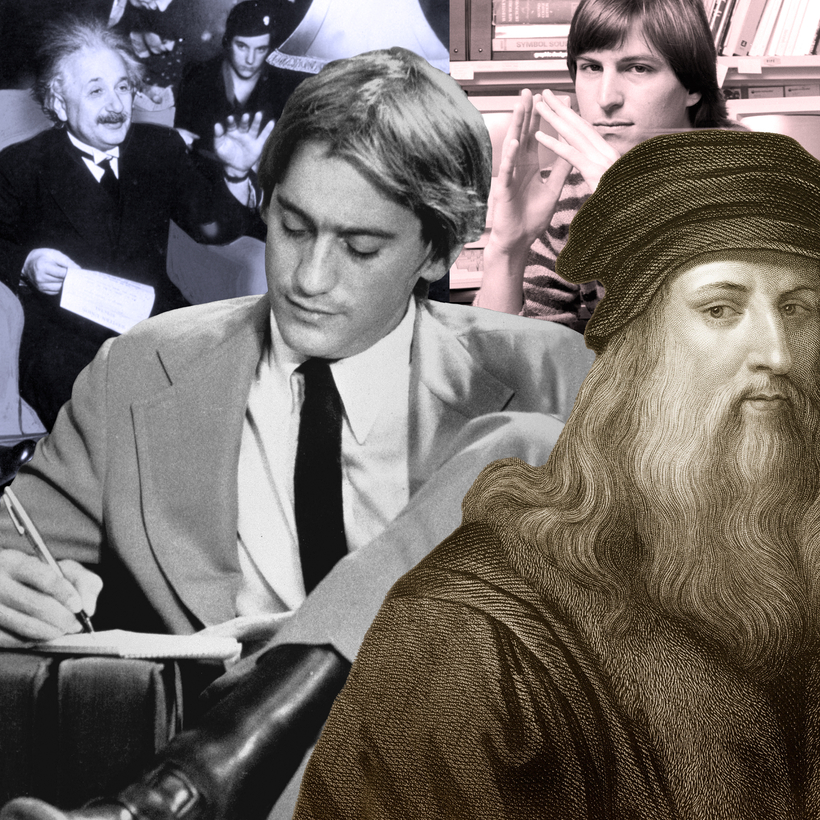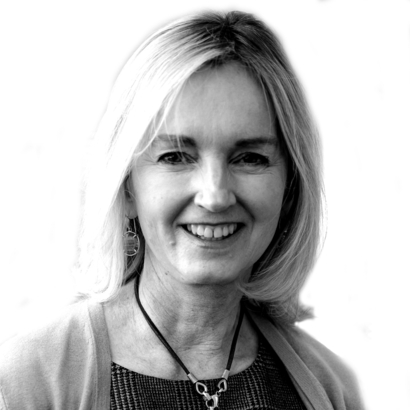Book writers’ partners play a variety of roles. Some are involved not at all until the book is birthed, and others are involved every inch of the way through the research, interviews, and editing. My role with Walter (to whom I’ve been married for 35 years) is a bit more like a two-sided funnel.
In the beginning, the funnel is wide. There’s the anticipation. We have wonderful discussions about why the book is interesting to us, why it’s important, and why others might like it and learn from it, too. And there’s the research, where we travel to fabulous museums (Leonardo), historic cities (Ben Franklin), transformative subcultures such as Palo Alto (Steve Jobs), and universities like Princeton (Einstein), where we puzzle out science or art or the nature of curiosity. Life is sunny.
But once the writing begins, we enter the narrowest part of the funnel, when Walter disappears into his basement office and becomes shockingly reclusive. Shocking because Walter has always been a rabid social animal. When we were first married I’d have to beg off going to the third party of the evening, knowing the next evening I’d have to do exactly the same. Endless cocktail conversation is Walter’s drug of choice.
For whatever reason, once he begins to write, he’s able to do a complete 180. He becomes laser-focused, shutting everything else out, and the time he spends in his basement lair extends into the pre-dawn hours.
When Walter first started writing books, I didn’t appreciate how strong his power of concentration was and would, when he’d emerge from the basement, rattle on normally about my day, only to be told, rather clippily, “I’m thinking!” or “I’ve got something in my head!” It was like every waking moment he had whole chapters in his mind that might suddenly disappear if he were diverted for 30 seconds.
I soon realized the best time to pounce—I mean, engage—was when he’d come up for air to make himself an enormous salad (his sustenance of choice during the writing phase). He seems to take particular glee in chopping up the vegetables, which fly all over the kitchen like green, orange, and purple confetti. I have never been able to figure out if this helps him work out the kinks in some problematic concept or paragraph, but it has become my signal. While he eats a few bites, I cram in the whole day’s conversation, blasting out the day’s problems and events; and when I pause for breath, he picks up his bowl and returns to the basement.
Endless cocktail conversation is Walter’s drug of choice.
I don’t really get a sense of how the book is coming along until he has a good first draft. Then the funnel seems to reopen and I am asked to read, and long discussions follow. He also consults me on possible covers. We debate the pros and cons of different fonts, colors, pictures, and art.
Reading his first draft, I see my role as being the “average” reader. I like to think my perplexed looks and fundamental questions have, across the years, made Walter a better translator of complicated science, or concepts, for the rest of us. But he was always pretty good at that. He is also a genius at so thoroughly animating the life of his subject that by the end of the book you feel there’s no one you know better, and you understand how this person’s accomplishments so profoundly shaped your life.
I was once asked if Walter takes on the traits of the person he is writing about, and, in fact, our daughter, Betsy, once said that in writing about Ben Franklin, Walter was writing about himself—an upwardly mobile newspaperman interested in science and diplomacy. She said that in writing about Einstein, Walter was writing about his own father—a friendly, distracted engineer with a strong humanist streak. Walter told her that with Steve Jobs, he was writing about her—a smart, fairly headstrong, tech-loving geek, and with Jennifer Doudna, the subject of his latest book, he was writing about me—smart, sensible, and persistent. You can see why I love him.
There is less joy when a book is finished than I would have thought. Walter wanders around aimlessly for a few days in a kind of postpartum depression until he can establish a new rhythm.
Eventually that gives way to a certain relaxation (and many social obligations—at least that’s how it was, pre-coronavirus). But what really energizes him is his next book project.
Cathy Isaacson is a New Orleans-based writer and former attorney. She serves on the board of numerous organizations, including New York Women’s Foundation, Greater New Orleans Foundation, Idea Village, and the Link Stryjewski Foundation


